Teas for Liver Health: Support The Vital Organ With Tea
The liver, one of the most important organd in the human body as well as the largest (it’s about the size of a rugby football, and weighs more than three pounds), confronts at least one seasonal test every year in the United States: October through December.
It all begins with the candy-inhaling Halloween bacchanal, continues across November as we dig into comfort food and savor Thanksgiving feasts, and grows even more challenging as we holiday-party our way into the New Year. As the body’s natural detoxifier, the liver must handle the flood of fatty, sweet, salty, processed and boozy foods and beverages that wash through the body during the year’s final quarter.
As the kick-off to the annual liver trial draws near, we dive into the liver and its functions, and offer a trio of teas that give the organ a hand as it works its way through processing wine and whiskey, cookies and cakes, and gravy, goose and green bean casserole.
The Skinny on the Liver
The liver’s role in human health is much more than so much chopped liver. Among other things, the glandular organ performs up to 500 functions for the body, everything from maintaining glucose levels to stocking iron and storing nutrients.
Fat makes up about 10% of the liver; when that number rises above 10% physicians consider it a “fatty liver,” and begin to counsel patients about heightened risk for type 2 diabetes. In addition to its detox powers, the liver also creates the blood upon which we all depend for life. It also possesses a magnificent ability to regenerate itself, which also contributes toward the relative ease (compared to other organs) with which surgeons can transplant livers. Also, when somebody donates half of their liver, the part of the organ left behind quickly begins building new tissues; in time, a full liver once again gets formed.
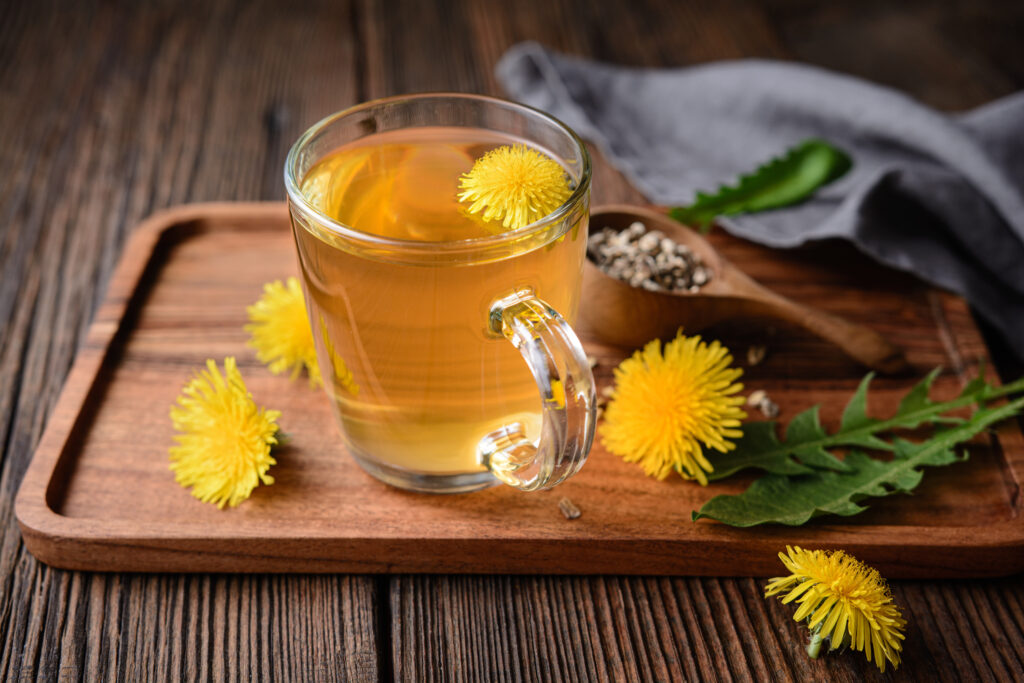
The liver:
- Produces bile, which is essential for getting rid of waste and breaking down fats in the small intestine during digestion
- Manufactures cholesterol and proteins to carry fats through the body
- Creates proteins for blood plasma
- Holds 13 percent of the body’s blood supply
It’s one of the body’s stars. Keeping the liver healthy and vigorous matters for human health. Diet is vital; one rich in ultra-processed and fatty foods, as well as alcohol, stresses the liver. We don’t want to stress the liver. Instead, we desire pampering the organ.
As everything people eat or drink passes through the liver, then the many botanicals found in tea also work their way through it. And some of the compounds found in tea serve as liver balm.
Teas for Liver Health: DetoxiTea
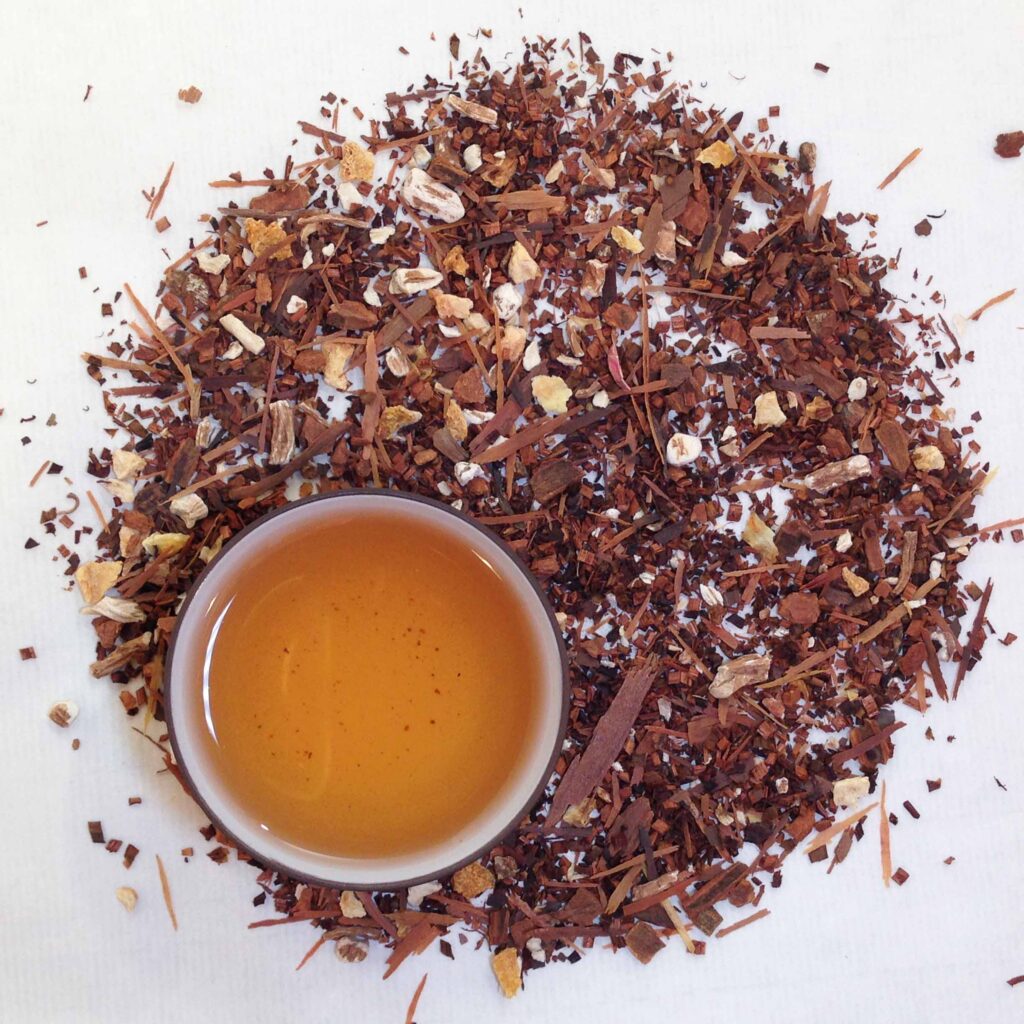
Many teas contribute toward liver vitality through different botanicals. But we designed our custom DetoxiTea to specifically address the liver, as well as the kidneys.
This wonderful liver tonic turns in part to organic dandelion root, an extremely powerful botanical that people have leveraged for centuries for liver health. But it also incorporates organic lapacho (also known as Paul d’arco), a bark harvested from a South American tree known as the “tree of life” that is packed with antimicrobial properties.
Honeybush, a South African shrub similar to rooibos, enhances the activity of enzymes (cytosolic glutathione S-transferase alpha) in the liver, which contributes toward liver stoutness.
We round out the blend with organic lemon peel and organic cinnamon, which add pleasing flavors to the powerful combination of botanicals.
Teas for Liver: Organic Ripe Puerh
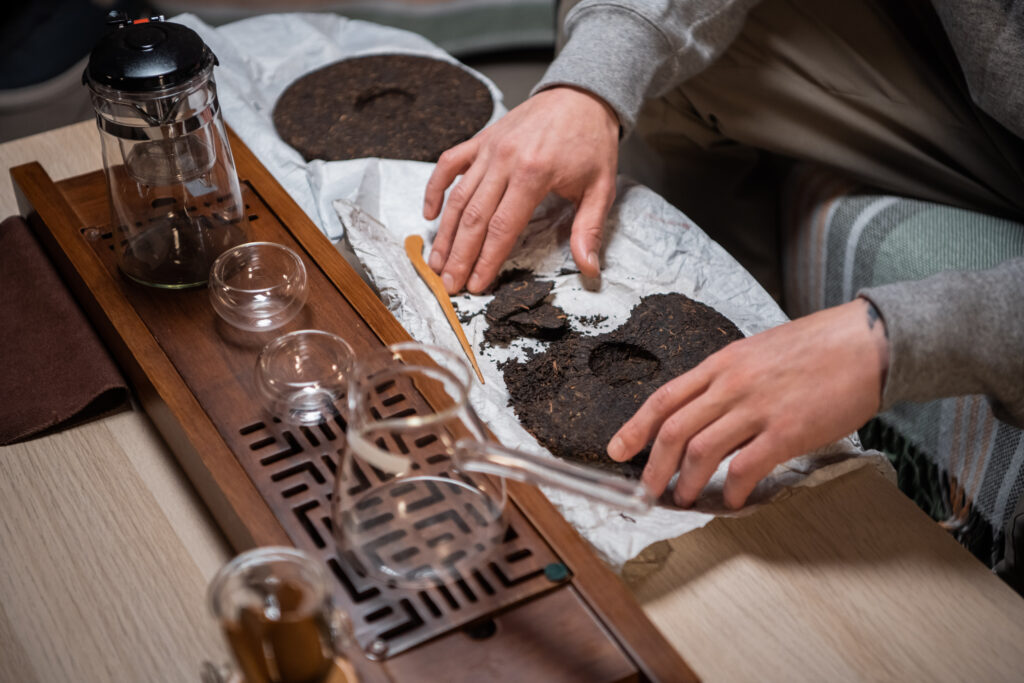
Tea artisans perform all manner of natural wizardry upon tea leaves to yield tea’s diversity of flavors: a range of growing methods, different kinds of oxidation protocols, varying methods for arresting oxidation, and more. But only one style, puerh, applies fermentation to tea leaves. The results are superb, and sought after by tea aficionados. In addition, the fermentation process adds health benefits to the tea.
One of puerh’s health advantages is its ability to decrease fat accumulation, which may help mitigate nonalcoholic fatty liver disease. The condition emerges when the liver holds excess fat. Puerh has endured a fair bit of scientific research exploring its potential health benefits. Some of that research addresses the liver, and the results are promising.
Great news on the puerh front: Not only is it good for the liver, it also offers complex and excellent flavors. There’s a reason people around the world collect and store puerh: it yields a wealth of tastes, and as it ages — just as with wine — the flavors grow increasingly complex.
Teas for Liver: Organic Sunrise Chai
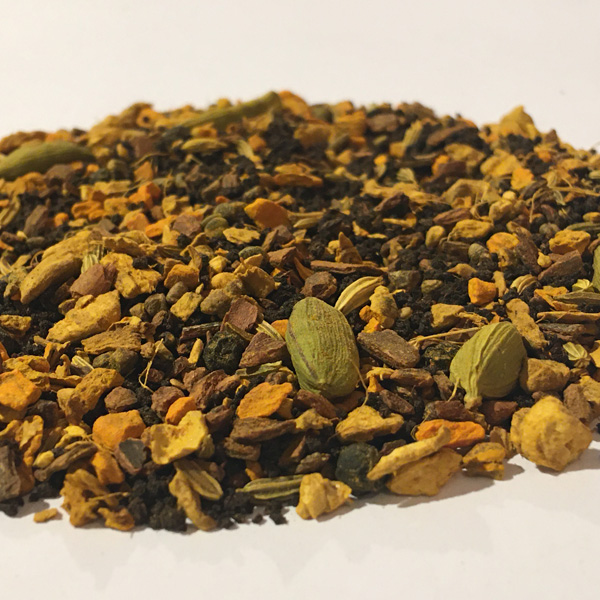
Chai blends contain a welter of spices and herbs, many of which boost health. This is one reason we adore chai, although our love of the tea mainly revolves around its superb flavor.
Of our many chais — we carry 10 — Sunrise Chai may stand as the most liver-beneficial. Why? Organic turmeric. The turmeric root captured a balance of the wellness zeitgeist about a decade ago, and its reputation for optimizing health has not receded — for good reason.
Researchers have identified turmeric as a powerful antioxidant, one that fights free radicals and helps the body’s cells heal and strengthen. In fact, some studies suggest that the rhizome may help treat nonalcoholic fatty liver disease; as a potent inflammation fighter, turmeric’s potential benefits make sense, as liver inflammation is a key symptom of the condition.
This broad blend of ingredients includes ginger, cinnamon, turmeric, clove, cardamom, fennel, black pepper and cayenne. The bespoke mix offers bold flavors; we love sipping this one with a smidgen of honey and perhaps a dollop of milk of some sort, including nut milks like coconut and oat.
The Liver-Supporting Power of Tea Botanicals
Dandelion Root:
Dandelion root is a powerful liver tonic that has been used for centuries in traditional medicine. It contains a variety of compounds, including sesquiterpene lactones, which have been shown to support liver health in several ways:
– Choleretic effect: Dandelion root stimulates the production and flow of bile, which is crucial for the digestion and elimination of fats and toxins from the body. This helps to prevent the buildup of harmful substances in the liver and promotes detoxification.
– Antioxidant and anti-inflammatory properties: Dandelion root is rich in antioxidants, such as luteolin and chicoric acid, which help to neutralize free radicals and reduce inflammation in the liver. Chronic inflammation is a major contributing factor to liver damage and fatty liver disease.
– Hepatoprotective effects: Studies have suggested that dandelion root may protect the liver from damage caused by various toxins and harmful substances, such as alcohol, certain medications, and environmental pollutants.
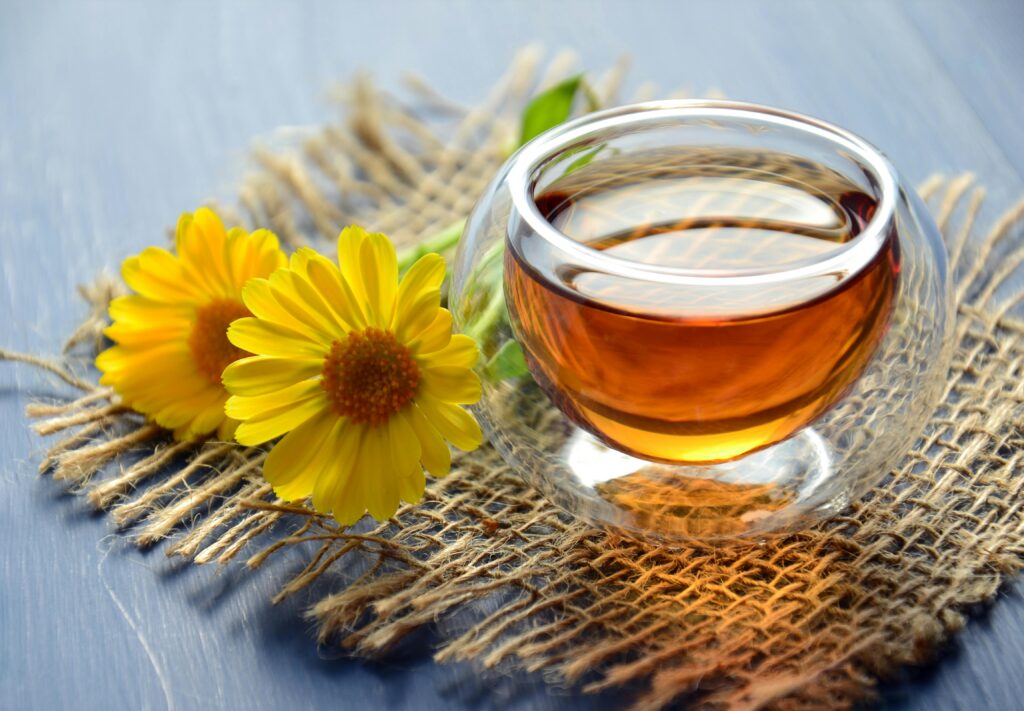
Lapacho (Pau d’Arco):
Lapacho, also known as Pau d’Arco, is derived from the bark of a South American tree and has been traditionally used for its medicinal properties. It contains several active compounds, including naphthoquinones and lapachones, which contribute to its liver-supportive effects:
– Anti-inflammatory and antioxidant activities: Lapacho exhibits potent anti-inflammatory and antioxidant properties, which can help to reduce inflammation and oxidative stress in the liver, both of which are associated with liver damage and fatty liver disease.
– Antimicrobial effects: Lapacho has been found to possess antimicrobial activities against various bacteria, fungi, and viruses, which may help to prevent and combat liver infections that can lead to further liver damage.
– Potential anticancer properties: Some studies have suggested that lapacho may have anticancer effects, including against liver cancer cells, due to its ability to induce apoptosis (programmed cell death) in cancer cells.
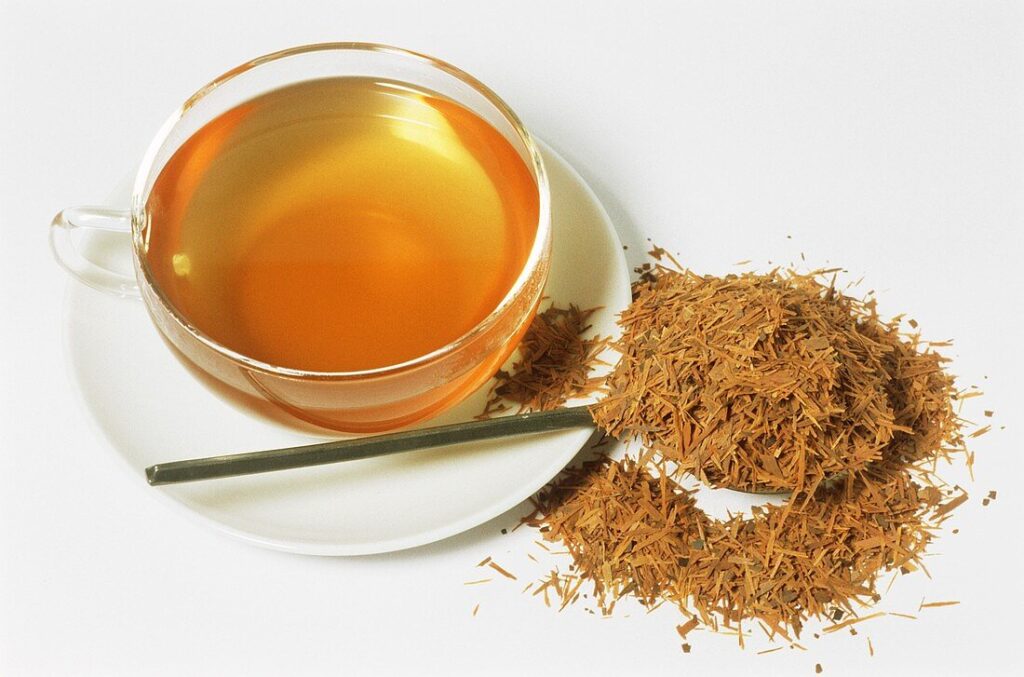
Turmeric:
Turmeric, a popular spice used in many cuisines, contains a compound called curcumin, which is responsible for its vibrant yellow color and many of its health benefits, including liver protection:
– Powerful antioxidant and anti-inflammatory effects: Curcumin is a potent antioxidant and has strong anti-inflammatory properties, which can help to reduce oxidative stress and inflammation in the liver, both of which contribute to liver damage and fatty liver disease.
– Hepatoprotective and regenerative effects: Studies have shown that curcumin may protect the liver from various toxins and harmful substances, as well as promote the regeneration of liver cells, aiding in the recovery and repair of liver tissue.
– Potential anti-fibrotic effects: Curcumin has been found to inhibit the development of liver fibrosis, which is the excessive accumulation of scar tissue in the liver, a condition that can lead to cirrhosis and liver failure.
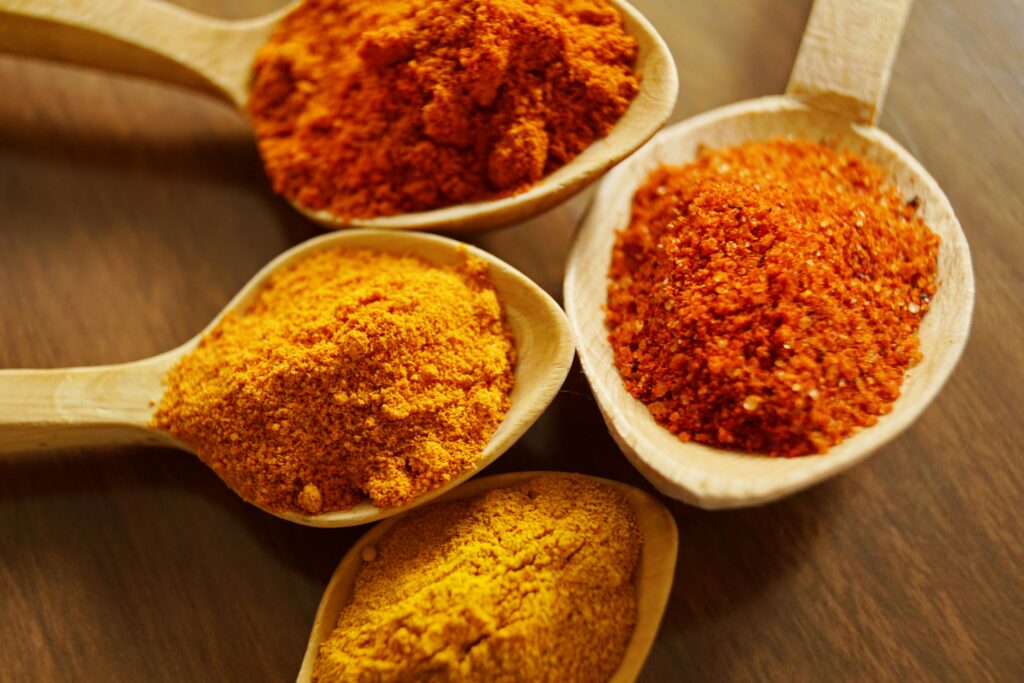
Brewing Instructions for Optimal Liver Health Benefits
Brewing Instructions:
Dandelion Root Tea:
– Use 1 teaspoon of dried dandelion root per cup of water.
– Bring water to a boil and pour over the dandelion root.
– Allow the tea to steep for 5-10 minutes for optimal extraction of the beneficial compounds.
– For a stronger flavor and potentially greater benefits, you can steep for up to 20 minutes.
Lapacho (Pau d’Arco) Tea:
– Use 1 teaspoon of lapacho bark chips or powder per cup of water.
– Bring water to a boil and remove from heat.
– Add the lapacho bark chips or powder and let steep for 10-15 minutes.
– For a stronger brew, you can steep for up to 20 minutes.
Turmeric Tea:
– Use 1 teaspoon of ground turmeric powder per cup of water.
– Bring water to a boil and remove from heat.
– Add the turmeric powder and let steep for 5-10 minutes.
– For a stronger flavor and potentially greater benefits, you can steep for up to 20 minutes.
– You can also add a squeeze of fresh lemon juice or a pinch of black pepper to enhance the absorption of curcumin from turmeric.
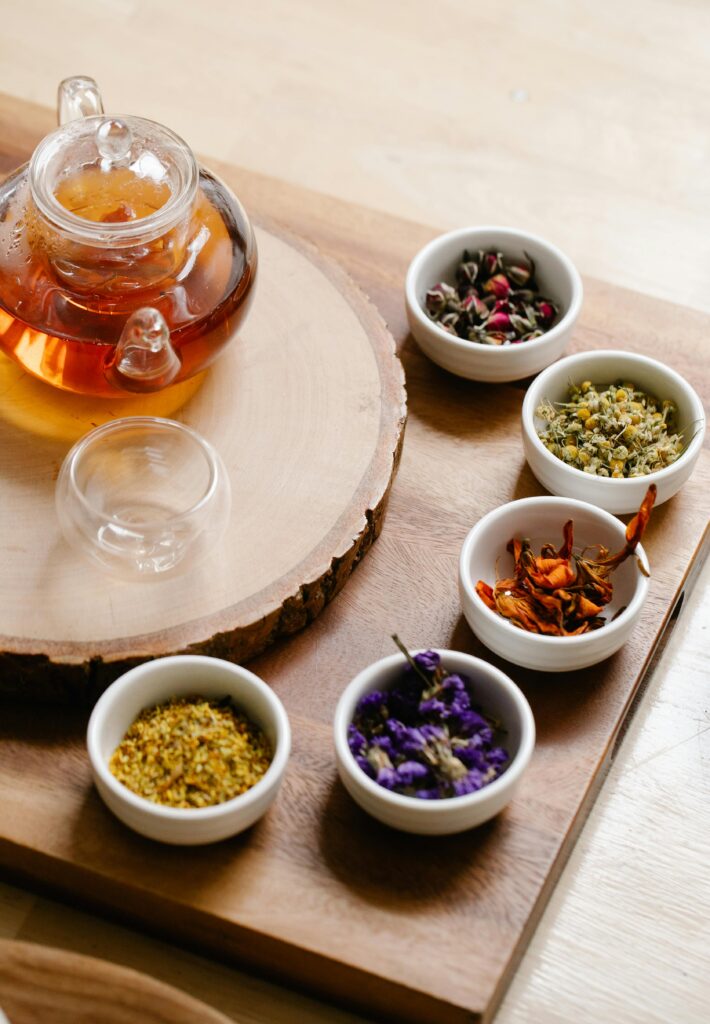
General Tips:
– Use fresh, high-quality ingredients for the best flavor and potency.
– Adjust the steeping time and amount of herbs/spices to suit your personal taste preferences.
– Consider drinking the teas hot or iced, depending on your preference.
– For maximum benefits, it’s recommended to consume these teas on a regular basis, ideally 1-2 cups per day.
– Consult with a healthcare professional if you have any specific medical conditions or are taking medications, as some herbs may interact with certain medications or conditions.
By following these brewing instructions and tips, you can ensure that you’re extracting the maximum benefits from these liver-supporting teas and enjoying their unique flavors to the fullest.
Discover the world of premium teas with Ku Cha House of Tea! Visit our blog for expert tips, delicious recipes, and exclusive insights into the art of tea.

